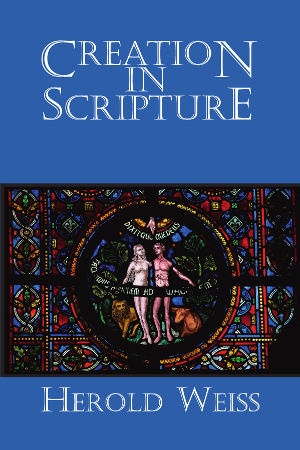Words from the Mouth of God?
In comments to an earlier post one reader notes that there are those who call the Bible “words from the mouth of God.” I respond that I do not think the Bible is words from the mouth of God, but rather the testimony of people’s experience of God. There are those who think I diminish the authority and power of the Bible in this way. I disagree. I think that the testimony that results from the experience of God is much more valuable, and I believe it also more accurately reflects the nature of the biblical text itself.
I believe that it’s valuable to be able to distinguish the nature and function of various portions of scripture. While all scripture is inspired, not all scripture is produce in the same way and it does not necessarily function in the same way. There are some obvious examples, such as the speeches of Job’s friends in the book of Job. That is surely quite a substantial amount of writing that is not words from the mouth of God. One may say that it is inspired and that it is profitable, yes, but in words that the book of Job actually attributes to God, we are told that it is not God’s message in those passages. They contribute to a message provided by the book, but the words are not God’s words.
Now most people who talk about verbal inspiration are not surprised by this sort of statement. There are also those who point out to me that it’s God’s Word, but not necessarily God’s words in all cases. It seems to me, however, that we might as well just come out and say it. Often our affirmations about scripture get in the way of what scripture actually is and how it functions.
I prefer to say that scripture is the testimony of those who have experienced God, brought forth in various ways using various forms. It is providentially preserved by God as the message that we need. It begins with an act of God (which may be an act of communication, but it might even be a permissive act, or lack of action, such as permitting the Assyrians to come against Israel (2 Kings 17). It might be reported as the words of God, as much material in the prophets is reported. It might be reported in the form of a story, or history researched and reported, as in Samuel-Kings. It might be a letter written to a church as in many of the epistles of the New Testament. In the end, it must be recognized by the community and then interpreted, in all cases providentially guarded by God. (Of course, we realize that in the interpretation, at least, God’s providence does not prevent our error or even our stupidity!)
Much of our discussion of inspiration centers around how the original text came into being. This is, indeed an interesting topic, but the majority of our differences come not from potential differences in the source texts but rather from our ways of interpreting them (see my post yesterday, Book: I’m Right and You’re Wrong). Further, I think our affirmations about inspiration often fly in the face of what we actually observe in scripture. This can result in us trying to make scripture fit our conception of what it ought to be.
If nothing else, the incarnation, in which God acts very much contrary to what everyone expects, should suggest to us the dangers of trying to force God’s actions into our molds. But it seems to me that we do this with scripture.
Consider Isaiah 7:1-17. This contains the famous “virgin” passage, but that’s not what I want to discuss. Read the passage carefully and look who’s talking at various points. I identify a narrator who gives the historical situation and then reports that Isaiah got a word from the Lord with instructions for action and a message to give to Ahaz. We also have a report on Isaiah’s action, and then some words that Isaiah said, some of which appear to be the words of the Lord, but some appear to be Isaiah simply expounding on what God is going to do. This entire passage is part of an overall Bible book which includes more than one type of literature, and even includes an historical interlude, but only a fraction of the whole claims to actually be God’s words.
There are those who think I make these comments because I don’t believe the Bible is very historical. I would note that I am not very disturbed by those who are skeptical of the historicity of many Bible passages. But I really find relatively little in the parts of scripture that actually claim to be history that I cannot accept as at least generally historical. What I mean here by “generally” is that I treat an account that says it’s taken from the “chronicles of the kings of Judah” (1 Kings 14:29 and many other references) as precisely that: it’s taken from the chronicles and it has precisely the historical veracity of those chronicles, always adjusted for second hand reporting. I don’t see it as necessary or valuable for God to “fact check” the sources. The message (word) of God is conveyed by the testimony (words) of a human writer depending on the words of other human writers.
Considering that those words will in turn be interpreted by very limited human beings such as me, I’m pretty happy with that situation.


Would you please comment on Matthew 4:4 in this connection.